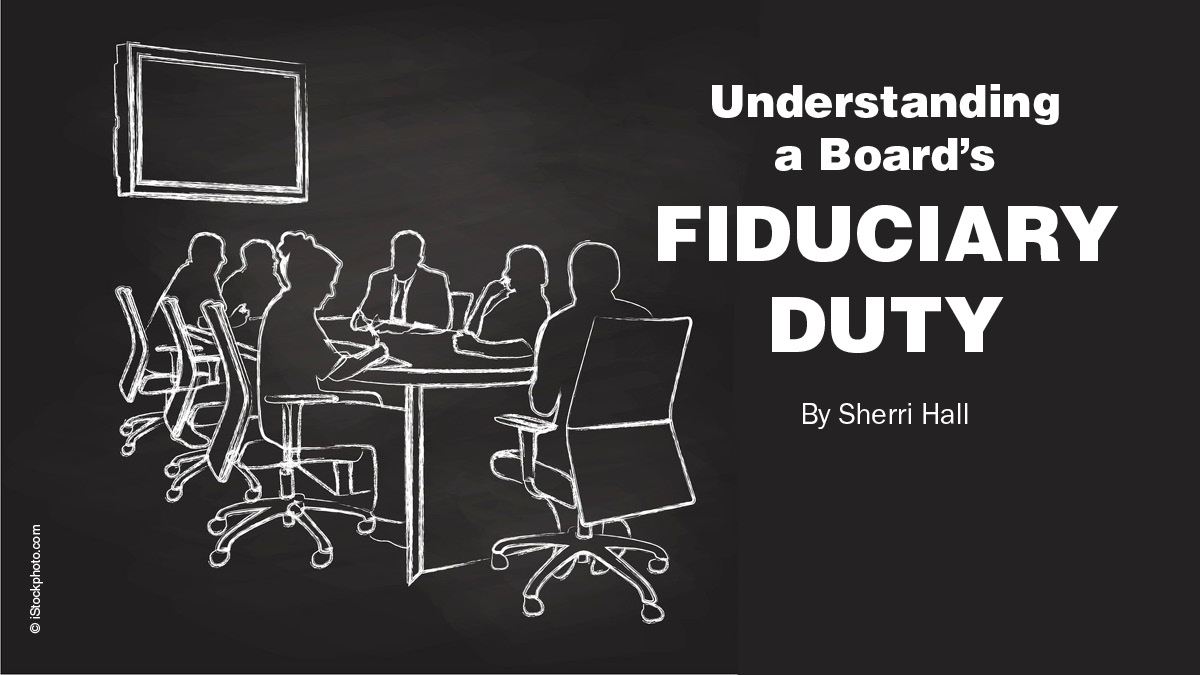
Understanding a Board’s Fiduciary Duty
When a homeowner decides to serve his or her association as a member of the board, that person has a fiduciary duty to act in the best interest of the community. So, what exactly does a board’s fiduciary duty entail? According to Attorney Stacey Patterson of Ansell Grimm & Aaron, PC, with offices in White Plains New York, Woodland Park New Jersey and Princeton, New Jersey, “fiduciary duty is the responsibility of the board members to ensure sound and proper operation and control of its community and to act in its best interest.”
Fiduciary responsibility includes such things as maintaining the common areas, hiring the right professionals to best protect the association’s interests, and ensuring that sufficient monies are collected, budgeted and expended in the course of an association’s operation, explained Patterson.
Is each board member a fiduciary for each resident? “Technically yes,” said Patterson. “Once you’re a board member, you’re a member of a single entity. When you’re acting in your capacity as a board member, you have the same responsibility to every member of the community.”
This also includes those members of the community who are not paying their dues, she added, as well as current tenants of unit owners.
What are the fiduciary responsibilities of board members? According to Patterson, the board is guided by the Business Judgement Rule, which means its members have to act objectively when making decisions in the best interest of the community. However, she added, there is no specific rule identifying exactly what it means to act in the best interest of a community. “Basically,” explained Patterson, “the board is going to be judged by the decisions that it makes due to the issues affecting that specific community.”
What are some examples of a breach of a fiduciary duty on the part of the board? Although hiring vendors without a bid process can be considered a violation, mismanagement of funds is a significant type of breach, said Patterson. Failing to ensure sufficient funds to properly operate the association or unnecessarily overspending on an item when there is a more significant need elsewhere, are some examples of misuse of funds. For instance, an obvious example would be if a community has a problem with cracks in its sidewalks, but the board chooses to hold a summer party rather than fixing them. Another example is not ensuring adequate reserves for necessary repairs and replacement such as roofs, as this could put a community at risk for a significant loss, Patterson explained. Some examples are not as obvious and will depend upon the needs of the particular community.
Can a board be sued for not fulfilling its fiduciary duties? “Yes,” Patterson noted, adding that is why it is important for associations to carry directors and officers (D&O) liability insurance. Under the right circumstances, D&O insurance can offer coverage, and a defense to boards in these types of lawsuits. It is not only important for D & O insurance to be purchased but also for board members to be aware of the policy coverages, exclusions and limitations, said Patterson.
For example, for D&O insurance to come into play at all, the lawsuit must have been brought for actions taken by individuals in their capacity as board members. “If a board member breaks a law outside of their capacity as a board member, that is not going to be covered by D&O,” said Patterson.
In the event that one board member, rather than the entire board, is not acting in the best interest of the community, the rest of the board can take action to remove the wrongdoer. “If a board becomes aware of one of its members acting against the best interest of the community, it should act swiftly to take whatever action is authorized by its bylaws and/or the law to have the person removed from the board. The length of time it takes the board to pursue the person who is breaching his or her fiduciary duty will likely play a role in a lawsuit against the board for a breach of duty, she added. For example, “if a board knew that a person was stealing for years and did nothing about it until it finally got sued, that could possibly be deemed a breach of fiduciary duty because by neglecting to act, the board did not act in the community’s best interest.